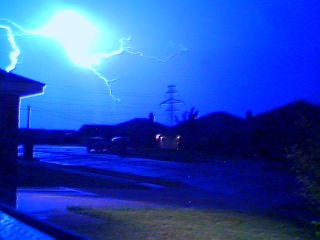Wow. Apparently being written from a self-professed Christian, I honestly don’t know what else I can say about this.
——————————————————————————————-
 “JACK WHEELER is a brilliant man who was the author of Reagan’s strategy to break the back of the Soviet Union with the star wars race and expose their inner weakness. For years he wrote a weekly intelligence update that was extremely interesting and well structured and informed. He consults(ed) with several mega corporations on global trends and the future, etc. I think he is in semi-retirement now. He is a true patriot with a no-nonsense approach to everything. He is also a somewhat well known mountain climber and adventurer. Written by Dr. Jack Wheeler the O-man, Barack Hussein Obama, is an eloquently tailored empty suit. No resume, no accomplishments, no experience, no original ideas, no understanding of how the economy works, no understanding of how the world works, nothing but abstract empty rhetoric devoid of real substance. He has no real identity. He is half-white, which he rejects. The rest of him is mostly Arab, which he hides but is disclosed by his non-African Arabic surname and his Arabic first and middle names as a way to triply proclaim his Arabic parentage to people in Kenya . Only a small part of him is African Black from his Luo grandmother, which he pretends he is exclusively. What he isn’t, not a genetic drop of, is ‘African-American,’ the descendant of enslaved Africans brought to America chained in slave ships. He hasn’t a single ancestor who was a slave. Instead, his Arab ancestors were slave owners. Slave-trading was the main Arab business in East Africa for centuries until the British ended it. Let that sink in: Obama is not the descendant of slaves; he is the descendant of slave owners. Thus he makes the perfect Liberal Messiah. It’s something Hillary doesn’t understand – how some complete neophyte came out of the blue and stole the Democratic nomination from her. Obamamania is beyond politics and reason. It is true religious cults, whose adherents rejects Christianity yet still believe in Original Sin, transferring it from the evil of being human to the evil of being white. Thus Obama has become the white liberals’ Christ, offering absolution from the Sin of Being White.
“JACK WHEELER is a brilliant man who was the author of Reagan’s strategy to break the back of the Soviet Union with the star wars race and expose their inner weakness. For years he wrote a weekly intelligence update that was extremely interesting and well structured and informed. He consults(ed) with several mega corporations on global trends and the future, etc. I think he is in semi-retirement now. He is a true patriot with a no-nonsense approach to everything. He is also a somewhat well known mountain climber and adventurer. Written by Dr. Jack Wheeler the O-man, Barack Hussein Obama, is an eloquently tailored empty suit. No resume, no accomplishments, no experience, no original ideas, no understanding of how the economy works, no understanding of how the world works, nothing but abstract empty rhetoric devoid of real substance. He has no real identity. He is half-white, which he rejects. The rest of him is mostly Arab, which he hides but is disclosed by his non-African Arabic surname and his Arabic first and middle names as a way to triply proclaim his Arabic parentage to people in Kenya . Only a small part of him is African Black from his Luo grandmother, which he pretends he is exclusively. What he isn’t, not a genetic drop of, is ‘African-American,’ the descendant of enslaved Africans brought to America chained in slave ships. He hasn’t a single ancestor who was a slave. Instead, his Arab ancestors were slave owners. Slave-trading was the main Arab business in East Africa for centuries until the British ended it. Let that sink in: Obama is not the descendant of slaves; he is the descendant of slave owners. Thus he makes the perfect Liberal Messiah. It’s something Hillary doesn’t understand – how some complete neophyte came out of the blue and stole the Democratic nomination from her. Obamamania is beyond politics and reason. It is true religious cults, whose adherents rejects Christianity yet still believe in Original Sin, transferring it from the evil of being human to the evil of being white. Thus Obama has become the white liberals’ Christ, offering absolution from the Sin of Being White.
There is no reason or logic behind it, no faults or flaws of his can diminish it, no arguments Hillary could make of any kind can be effective against it. The absurdity of Hypocrisy Clothed in Human Flesh being their Savior is all the more cause for liberals to worship him: Credo quia absurdum, I believe it because it is absurd. Thank heavens that the voting majority of Americans remain Christian and are in no desperate need of a phony savior. His candidacy is ridiculous and should not be taken seriously by any thinking American.”
——————————————————————————————-
Ah, what a forceful and convincing argument. If I were hypothetically voting for Obama, I surely wouldn’t now ![]() . And now my fed up response to those conservatives who send out such nonsense.
. And now my fed up response to those conservatives who send out such nonsense.
——————————————————————————————-
“I don’t agree with Obama on a whole host of issues (not to mention his whole worldview perspective) and will obviously not be voting for him … But I could come up with a list of things in that article that are blatantly anti-Christian to even say. Just the way things are phrased reeks of blinding self-righteousness. Unfortunately, it’s that kind of rhetoric that makes conservative Christians look like a bunch of insensitive idiots to the rest of the unbelieving world.
My response to the assertions made such as “he’s half white,” and “The rest of him is mostly Arab” (even if true, which my question is, SO WHAT?): they reek of racism and a feeling of cultural superiority against all others, which is totally rejected and commanded against in the New Testament on many many occasions as an attitude not in line with a life lived out of the Gospel that has saved us poor desperate sinners who deserve only wrath. And Obama “has no real identity?” That’s just a blatant flaming ad hominem against Obama as a person. Yes, he’s a person, a human being, believe it or not. Of course he has an identity. Absurd.
Seriously, before speaking, Christian’s really need to read over basic proper argumentation logic and avoid falling into giant debating pitfalls such as the following http://www.carm.org/apologetics/fallacies.htm . “Obama is not the descendant of slaves; he is the descendant of slave owners.” Again, so what if he was or wasn’t, as an argument for or against him, on either side of the aisle? What relevance does any of this have to him as a valid Presidential candidate or not? Not once have any major political issues been mentioned, or ideological problems one might have against his own. The very fact of the matter is, whether white’s like it or not, race relations in this country have finally reached a point in our society where African Americans can now hold the highest office in the nation. And though I won’t be voting for Obama based on ideological, philosophical, and theological reasons, I for one am glad about that as a believer in the Gospel, in the fact that Christ is redeeming people from every, “tribe, tongue, people and nation,” (Revelation) not just from white “Christian” America.
Is anyone on the opposite side of the fence of us conservatives really going to listen to such non-arguments of hatred toward the guy? There is no place for that in a believers life. I’m convinced that for every conservative argument against liberals, there’s an equally condemning argument that could made against us as well. Articles like this prove that fact. Just the attitude with which many conservatives come at liberals just implicitly and explicitly asserts that we are somehow inherently better than them. But we’re not. We’re just as messed up as they are … sinners in desperate need of a Savior. However, we’re the “Pharisees” in this cultural picture, the one’s who are all cleaned up on the outside and dead on the inside, we just do a better job of hiding it (maybe) so we don’t look bad to our peers. And really? “Thank heavens that the voting majority of Americans remain Christian” … um, yeah, not with attitudes like this so much. We’ve become almost as non-Christian and adoctrinal as Europe was ten years ago, and yes, since they’ve gotten worse since then, it is likely we will as well, save by the grace of Christ. Again, we more resemble the Pharisees in Jesus’ time who hated other people, like the woman at the well, all Gentiles, and those begging at the temple gate … yet those were the people Jesus displayed His power and authority to, opening their eyes, healing their wounds and disabilities, and usually saving them with a mighty hand, something he needs to do for us as a group as well, apparently.
I hope Obama is not President, but certainly NOT for the reasons given in this article. I have disagreements with his policies on healthcare, economics, morality issues, defense issues, etc., but not him as a person. Why don’t you send this back up the chain to how ever many people were on the list …”
——————————————————————————————-
Updated @ 11:32 pm
John Hendryx has some excellent answers on evangelicals and politics in this online interview, which I am excerpting. I figured this commentary would be good to add to the issue above as well.
——————————————————————————————-
“10. What is your opinion of the evangelical interest in politics and the identification of many Christians with the Republican party?
While I believe we should be engaged in our civic duty to vote and be engaged, it appears to me that many evangelicals have gone beyond the call of duty and have bought into dominion theology. Some of us seem to hold the false belief that if we just changed the laws and made the US political system based on the Bible then all would be well while not considering the changing of hearts. My response to this is that the problem is not just OUT THERE, it is with us. If we lived like we believed the gospel ourselves, then God would use us to change the culture. While I can agree that civil law can be used to restrain evil, we often bludgeon our secular opponents with it as if they could somehow be saved through obedience to it. I believe the first table of the law cannot be legislated. Persons must be persuaded into the Kingdom by human instruments casting seed with the Spirit germinating it, so to speak, but not by the sword or by coercive legal measures. Contrary to my evangelical and Theonomist brethren, I do not believe that the civil magistrate has the authority to judge heresy. A little known historical fact is that the Presbyterian Church wisely invoked semper reformanda and removed chapter 23(?) on the Civil Magistrate from the Westminster Confession in the early 1700s. A move for which I am thankful. Instead, we are to take up our cross and persuade as Jesus did, through meekness, suffering, joy, helping the poor and loving others above ourselves.
I have no problem with Christians personally identifying themselves with a party, but I will emphasize that politics is not the solution to our problems by any stretch of the imagination. There is entirely too much emphasis placed on it, as if God’s plan could somehow be thwarted. We should vote and do what we can to eradicate injustice, poverty and to actively find ways to be involved in mercy ministries. This might mean entering politics on a local level or just merely spending time with hurting people. But if the Republicans don’t get elected next term it isn’t the end of the world. Maybe a little discomfort will begin to burn off the dross in our churches. We must remember that God ordains whatsoever comes to pass. If God wills that we should live in Babylon, we must serve the it with excellence, influencing it by being good stewards of the calling God has given each one of us. Though some may be tempted when things get real bad, we should never take up arms to further our political agenda.
I have lived in a communist country for 10 years and, I can tell you with certainty, that the gospel is not chained because of a political system. On the contrary, communism has been a key factor in raising interest in Christianity in that country on a massive scale for the first time in their 5000-year history. It seems that Christians have become so addicted to comfort here that there is very little awareness of how people are living in the rest of the world. But we Americans are of very little account in the big scheme of things.”
Taken from http://www.westerfunk.net/archives/theo … 20Hendryx/

 More than anything I am saddened by Donald Miller’s recent statements both in an interview with
More than anything I am saddened by Donald Miller’s recent statements both in an interview with  From the way many teachers teach and many pastors preach nowadays, you would think the Gospel was something that just makes sense to people, that it’s like a lay up explanation that will solve all of people’s various urgent problems. “First, all you have to do (as if the demands of the Gospel were in our own power to achieve, namely faith and repentance that only come from God to begin with) is 1, then 2, and then 3, and bingo! You’re saved and all your problems will be fixed because God wants you to live life to your fullest potential!” If we can boil the Gospel down into this nice little package, maybe people will more easily accept it, at least so the thinking goes.
From the way many teachers teach and many pastors preach nowadays, you would think the Gospel was something that just makes sense to people, that it’s like a lay up explanation that will solve all of people’s various urgent problems. “First, all you have to do (as if the demands of the Gospel were in our own power to achieve, namely faith and repentance that only come from God to begin with) is 1, then 2, and then 3, and bingo! You’re saved and all your problems will be fixed because God wants you to live life to your fullest potential!” If we can boil the Gospel down into this nice little package, maybe people will more easily accept it, at least so the thinking goes.









 “God looks down from heaven on the children of man to see if there are any who understand, who seek after God. They have all fallen away; together they have become corrupt; there is none who does good, not even one.” –
“God looks down from heaven on the children of man to see if there are any who understand, who seek after God. They have all fallen away; together they have become corrupt; there is none who does good, not even one.” –  That this distinction may be the more manifest, we must consider that the Providence of God, as taught in Scripture, is opposed to fortune and fortuitous causes. By an erroneous opinion prevailing in all ages, an opinion almost universally prevailing in our own day, viz., that all things happen fortuitously, the true doctrine of Providence has not only been obscured, but almost buried. If one falls among robbers, or ravenous beasts; if a sudden gust of wind at sea causes shipwreck; if one is struck down by the fall of a house or a tree; if another, when wandering through desert paths, meets with deliverance; or, after being tossed by the waves, arrives in port, and makes some wondrous hair-breadth escape from death – all these occurrences, prosperous as well as adverse, carnal sense will attribute to fortune. But whose has learned from the mouth of Christ that all the hairs of his head are numbered, (
That this distinction may be the more manifest, we must consider that the Providence of God, as taught in Scripture, is opposed to fortune and fortuitous causes. By an erroneous opinion prevailing in all ages, an opinion almost universally prevailing in our own day, viz., that all things happen fortuitously, the true doctrine of Providence has not only been obscured, but almost buried. If one falls among robbers, or ravenous beasts; if a sudden gust of wind at sea causes shipwreck; if one is struck down by the fall of a house or a tree; if another, when wandering through desert paths, meets with deliverance; or, after being tossed by the waves, arrives in port, and makes some wondrous hair-breadth escape from death – all these occurrences, prosperous as well as adverse, carnal sense will attribute to fortune. But whose has learned from the mouth of Christ that all the hairs of his head are numbered, ( When I say I’m Reformed, I’m associating myself with the Gospel doctrines as recovered in the Reformation that I believe to be true for all people, whether they assert the truth of these doctrines or not. Reformed theology is the understanding of Scripture I believe to be the clearest systematized explanation of the faith.
When I say I’m Reformed, I’m associating myself with the Gospel doctrines as recovered in the Reformation that I believe to be true for all people, whether they assert the truth of these doctrines or not. Reformed theology is the understanding of Scripture I believe to be the clearest systematized explanation of the faith.